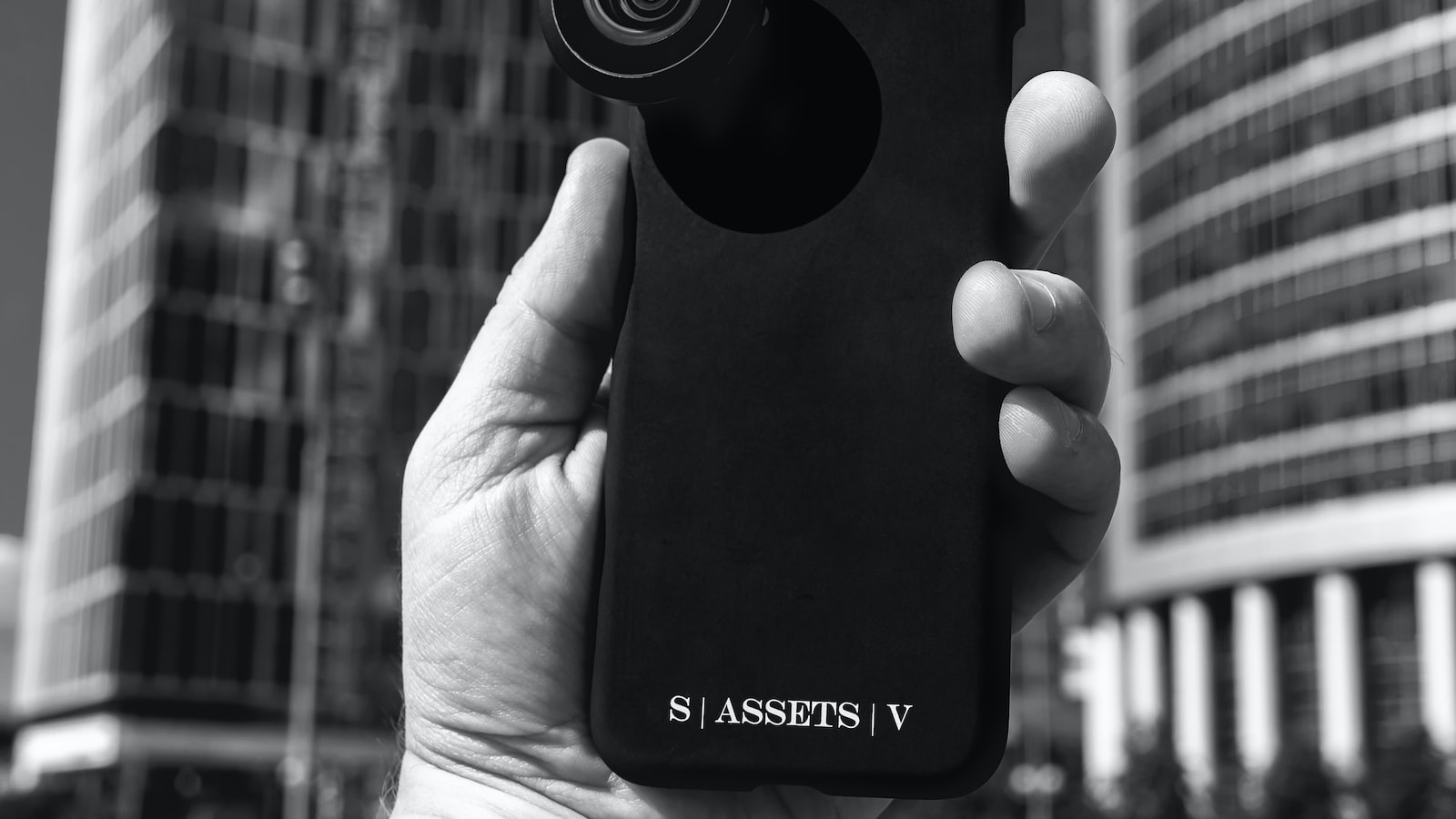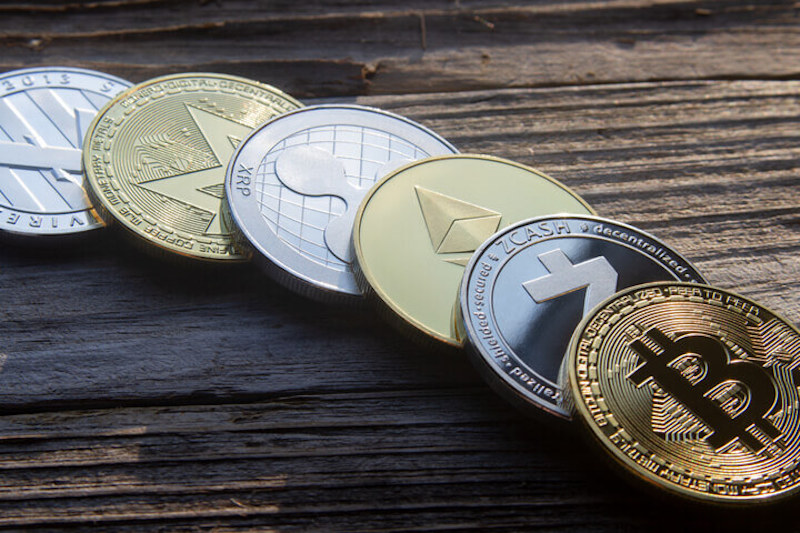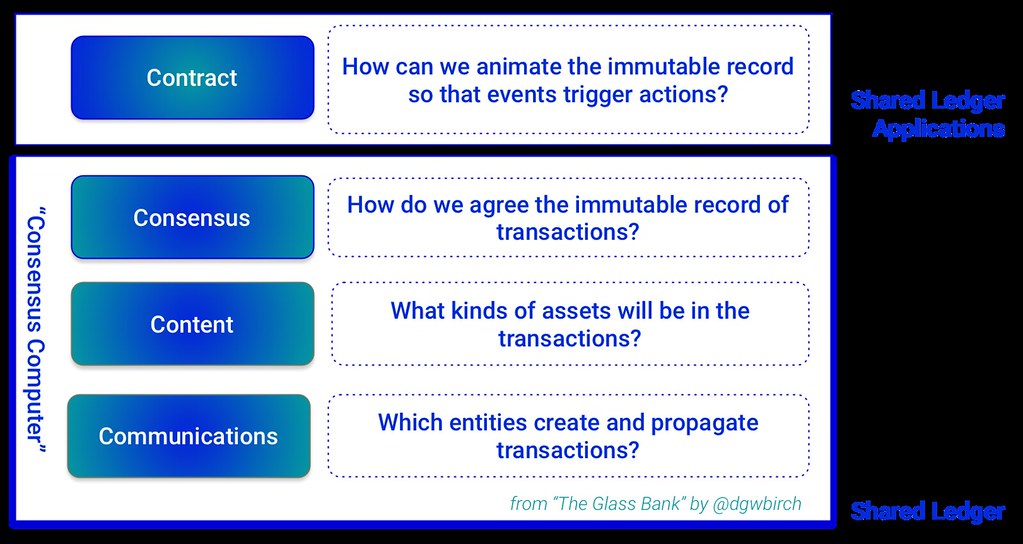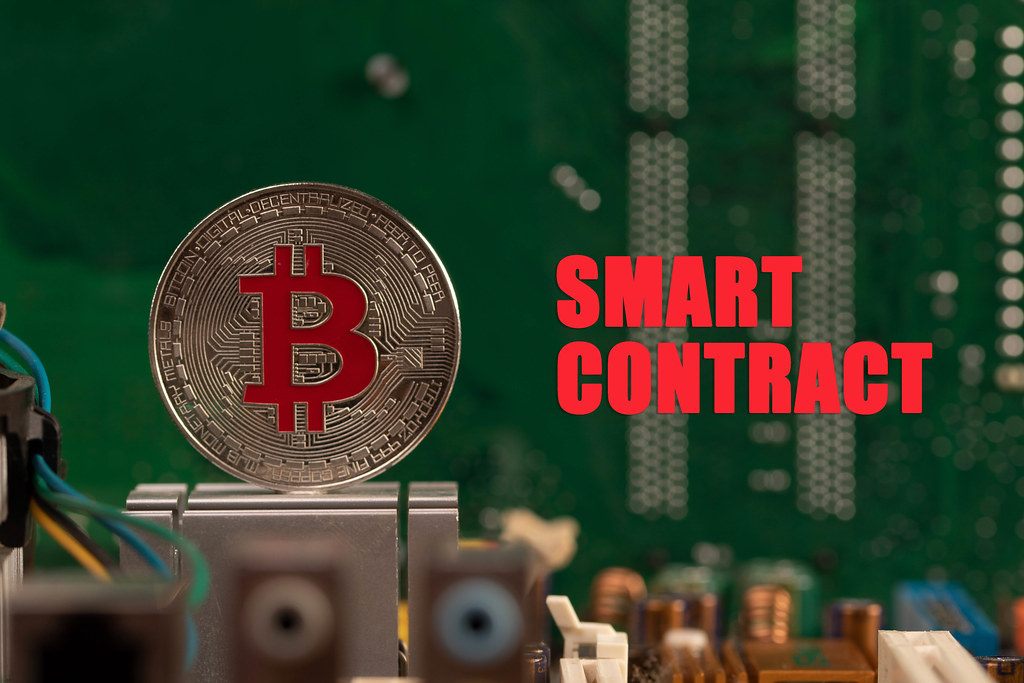Technology has revolutionized how we carry out business transactions, and the introduction of blockchain is no exception. With the advent of its “smart contracts,” blockchain is now able to do more than just streamline and secure financial transactions; it is ushering in a trust revolution. In a world where trust is becoming increasingly digital, smart contracts are becoming increasingly vital to business. This article will explore what this blockchain trust revolution means and how it will shape the future of business interactions.
The Power of Blockchain to Revolutionize Trust
Blockchain technology is revolutionizing the concept of trust in the business world. The power of its distributed ledger system allows for secure and reliable transactions that do not require a third-party intermediary. Blockchain also enables smart contracts—digital agreements between individuals or organizations—that are automatically enforced through the use of cryptography. These contracts eliminate the need for third-party oversight.
Smart contracts are the driving force behind the trust revolution, as they reduce transaction costs and allow businesses to closely monitor their financial operations. By storing every transaction in the distributed ledger, businesses can track their funds more easily and minimize their risk. This technology also has potential applications in the legal, healthcare and financial sectors, as contracts can be securely executed and tracked in an immutable and transparent ledger.
Furthermore, the use of smart contracts allows for greater efficiency in completing financial and legal transactions. By operating on a secure and automated platform, companies can quickly and securely process contracts, making routine tasks much faster and more efficient. Thus, blockchain technology has the power to revolutionize trust and bring about more efficient processes, saving time and money in the long run.
Developers are harnessing the power of blockchain technology, along with smart contracts, to create new and innovative trust-based solutions. These solutions make it possible for businesses to benefit from the trust revolution by reducing costs and time spent on executing contracts.
- Blockchain technology eliminates the need for third-party intermediaries.
- Smart contracts facilitate secure and reliable transactions.
- Digital agreements enable businesses to closely monitor their financial operations.
- Efficient and secure contract execution saves time and money.
With the emergence of blockchain technology, businesses no longer need to rely on third-party intermediaries to execute contracts. Smart contracts allow companies to quickly and securely complete transactions and streamline their financial operations, enabling them to focus greater attention on their core activities. Blockchain and smart contracts are revolutionizing trust and bringing about a new era of trust-based solutions.

Understanding Smart Contracts on the Blockchain
Blockchain-based smart contracts represent a seismic shift in the way we trust and establish relationships. Instead of relying on a third-party source, like a lawyer, to establish contracts, the terms of a smart contract are written directly into secure computer code that is stored on the blockchain distributed ledger. While the code is written by humans, it is executed and maintained by the computers it is running on, eliminating potential human errors, manipulation, and trust issues.
Smart contracts offer a range of advantages over traditional contracts, including:
- Transparency: Every party involved in a blockchain-based smart contract can access the ledger and view the code, ensuring that no one is acting outside of the contract terms.
- Speed and Efficiency: Smart contracts can be executed instantaneously, without the need for time-consuming paperwork or lengthy negotiations.
- Security: The use of cryptography and decentralized storage make smart contracts virtually tamper-proof.
- Lower Costs: The ability to automate many tasks that are currently done manually removes the need for human labor and associated costs.
In addition, smart contracts are capable of self-regulation, meaning if certain conditions are met, the code will automatically execute without any external interference. This reduces the need for oversight and also eliminates the possibility of third-party interference, allowing for more secure and efficient transactions.
Smart contracts are revolutionizing the way we trust and interact online, offering an unprecedented level of security and efficiency that is sure to revolutionize the way we do business.

Enhancing Security and Transparency with Smart Contracts
Smart contracts on blockchain technology have revolutionized the way trust is established and maintained online. In contrast to the manual enforcement of traditional contracts, these digital agreements self-execute and are highly resilient against third-party tampering. Their core benefit is that they reduce the need for an intermediary, resulting in a tremendous increase in security and transparency. Here are the three key features of smart contracts:
- Security: Smart contracts use advanced cryptography to securely encrypt and store data in the blockchain. This ensures that data can only be manipulated once both parties agree to terms specified in the contract.
- Transparency: With a ledger of all transactions stored on the blockchain, records of smart contracts remain public and over time become immutable.
- Automatic enforcement: Smart contracts are self-executing, meaning that given certain conditions, the parties involved in the agreement are automatically bound by its provisions.
In addition to providing security and transparency, smart contracts also enable parties to instantly transfer or exchange agreement parameters, such as money or services, without having to wait for clearance or verification from third parties. This capability is particularly attractive in industries where rapid settlement and low transaction fees are crucial, such as international payments, online casinos, and stock exchanges.
Smart contracts have the potential to revolutionize the way trust is established and maintained online. By unlocking the ability to securely execute digital agreements without relying on a third party, these digital contracts are set to become the future of digital trust.

Challenges and Opportunities in Implementing Smart Contracts
Blockchain technology has become a hot topic of conversation in the industry due to its ability to provide trust through smart contracts. Smart contracts enable parties to enter into agreement without third-party intervention, reducing costs, and increasing efficiency. Despite the potential of smart contracts, implementing them rests on several important challenges.
- Security: The security of a blockchain system is a major challenge to ensure the safety of a smart contract. Security measures must be put in place to protect against external attacks and hacking that can effect the integrity of the contract.
- Scalability: In order for a smart contract to be successful, it must be able to scale to support interactions from individuals and organizations without hindering its performance.
- Legal Issues: Smart contracts must be compliant with the law, and there are issues surrounding their application which must be addressed. Medical, financial, and other complex agreements may present additional challenges to creating a legally binding agreement.
As the technology continues to evolve, these challenges can be addressed and the opportunities of smart contracts can finally be realized. Smart contracts will open the door for individuals and organizations to transact without having to rely on a third-party to mediate. This will create trust and lead to a more efficient network, as well as freeing up resources for further innovation.

The Potential Impact of Smart Contracts on Various Industries
Once viewed as nothing more than an advanced promise, smart contracts have the potential to revolutionize the way various industries operate. When deployed on the blockchain, these trust-based contracts are automated, immutable and highly secure. In addition to providing a secure agreement, they can also drastically reduce transaction costs since they don’t require a third-party to facilitate the agreement.
Smart contracts can be used in a variety of industries, from financial services to government registrations. Here are a few potential uses of smart contracts that can be seen in the near future:
- Healthcare: Smart contracts can be used to store and share medical records, ensuring privacy and autonomous access.
- Insurance: Insurers can deploy smart contracts to automate the process of claims and payments. Smart contracts can also provide a secure platform for customers to purchase coverages.
- Supply Chain Management: Through the use of decentralized ledgers, smart contracts can be used to track the entire supply chain, providing transparency for both buyers and sellers.
- Real estate: Smart contracts can be deployed for the exchange of land titles and related documents. They can also be used to define property ownership and rights.
It’s clear that smart contracts are poised to revolutionize the way various industries operate in the near future. From healthcare to real estate, these trust-based contracts provide a secure and transparent platform that can drastically streamline the process of contract and document management.

Leveraging Blockchain’s Smart Contracts for Financial Services
Blockchain technology has been revolutionizing the financial services industry by introducing the concept of smart contracts. Smart contracts are digital contracts that operate within the blockchain’s underlying architecture and are secured, coded, and recorded on a decentralized ledger. Smart contracts are made possible through the combination of digital ledger technology, cryptographic encryption, and self-executing code, which allows financial transactions to be agreed upon and securely executed without any intermediary.
Benefits of Smart Contracts
- Instant settlements – Transactions are secure, immutable, and complete almost instantly.
- Reduced costs – Middlemen are removed, saving investors considerable time and money.
- Enhanced privacy – Data security is ensured through the use of encryption.
- Fewer errors – Smart contracts are digital and error-free.
As banks and other financial institutions continue to explore and understand the full potential of blockchain-based smart contracts, many are leveraging them to create more efficient and secure systems for managing assets. Smart contracts are already addressing the need for quicker and more streamlined trading of financial instruments such as stocks, bonds, derivatives, and currencies. By removing the manual processes of executing these trades, blockchain-based smart contracts make transaction times faster and settlement fees cheaper.
Through the deployment of smart contracts, the blockchain is helping to usher in the dawn of a trust revolution. By securely recording and storing information on a distributed ledger, blockchain eliminates the need for a centralized authority, transforming the way financial transactions are conducted. It is this trust revolution that is transforming the financial services industry and paving the way for better services and improved customer experience.

Streamlining Supply Chain Management through Smart Contracts
Smart contracts facilitate an unparalleled level of trust in business. Smart contracts, implemented on Blockchain with Ethereum, streamline supply chain management and their potential is only starting to be realized. Through the use of blockchain-enabled smart contracts, a variety of processes can be automated, mitigating the need for manual tasks, which are often error-prone and time-consuming. Here’s why smart contracts are transforming supply chain management:
- Automation: Smart contracts can be coded to trigger different automated actions based on certain conditions. An example would be an electronic invoice that is automatically sent to the customer when the product is delivered. This automation streamlines the entire process and eliminates human error.
- Traceability: Blockchain technology helps create an indisputable digital record of all interactions within the supply chain. The traceability of supply chain activities helps the entire process run more smoothly and reduces the likelihood of fraud.
- Security: Smart contracts utilize cryptography to ensure secure communications and digital transfers. Transactions are verified and cannot be tampered with, thus providing a higher degree of transaction integrity.
Smart contracts are revolutionizing how supply chain management is conducted and enabling enterprises to operate more efficiently and securely, reducing manual labor and errors. The potential of smart contracts is nearly limitless and can truly revolutionize the way businesses interact and operate.

Integrating Smart Contracts into Legal Systems and Dispute Resolution
As blockchain technology continues to grow, it opens up a range of opportunities for businesses across many industries. One of the most promising advances is the development of ‘smart contracts’. These automated programs operate using the same key principles of blockchain and use distributed ledger technology to facilitate the exchange of assets and enforce agreements.
Smart contracts can provide a number of benefits, such as:
- Efficiency: Smart contracts can help automate tasks, reducing human error and removing costly, time-consuming processes.
- Decentralization: Smart contracts provide a secure and transparent way to conduct transactions and other operations. They are decentralized, which means no single party can influence or change them.
- Enhanced Security: Smart contracts are protected by cryptography and access restricted only to parties involved.
The implications of this technology are huge and could radically change the way legal systems resolve disputes. Smart contracts provide a digital ‘contract’ whereby two or more parties agree on the terms and can enforce the agreement in a secure manner. This would allow for quicker, more efficient resolution of disputes and for parties to trust that the terms of the agreement are met.
Aside from providing an automated and secure way to execute dispute resolution, smart contracts can also help in the execution and enforcement of legal documents such as contracts, leases, and wills. This could help streamline legal processes and create a more efficient basis for dispute resolution.
As blockchain technology continues to develop, the potential applications of smart contracts and their effects on legal systems are just beginning to be explored. Smart contracts have the potential to revolutionize dispute resolution, creating a more secure, transparent, and efficient system, while at the same time increasing trust and reducing costs.

Ensuring Privacy and Data Protection in Smart Contracts
As blockchain technology develops, digital trust and privacy will be the cornerstone of the trust revolution. Smart contracts are one of the most promising applications of the blockchain and make trust and privacy much more attainable. Smart contracts are digital agreements that are deployed to the blockchain and executed based on pre-defined conditions.
Securing these contracts with proper privacy and data protection measures is essential to build trust and ensure that parties involved in the contract are adequately secured. Here are some of the ways to ensure privacy and data protection in smart contracts:
- Encryption: Smart contracts can be encrypted to ensure that only the parties involved in the contract will have access to the data.
- Access Control: Smart contracts can be designed to have different levels of access control based on the authorization for each user. Additionally, access control measures can be put into place to determine which parts of the contract are viewable or editable to different users.
- Auditing: The code of the smart contract needs to be audited regularly to identify any potential security flaws. This can be done manually by reviewing the code or through security audit tools.
- Data Protection: Data should be anonymized and only the data necessary for the contract should be stored. All data should be hashed and encrypted to ensure that it can’t be accessed or used by any third party.
By ensuring that these measures are implemented, smart contracts can be made much more secure and private. This will enable trust to be built between counterparts and allow more secure and efficient transactions to take place.

Best Practices for Developing and Auditing Smart Contracts
The blockchain space is continuously evolving, with smart contracts being an area of revolutionary development. Smart contracts enable the automatic execution of transactions, which is tantamount to a trust revolution – fueling the evolution of decentralized autonomous organizations (DAOs). Developing and auditing smart contracts, however, is not an easy feat, and it requires expertise and a keen eye.
:
- Aim for clear contract readability.
- Optimize for efficiency but not at the cost of safety
- Write contracts with minimized attack surfaces.
- Develop contracts in a reduced-functionality constructs.
- Test and verify smart contracts rigorously.
- Create backup plans for emergencies.
- Review, audit, and familiarize yourself with existing smart contracts.
- Ensure your contracts are safe and secure from any breach.
- Adhere to best practices for naming, and managing functions and variables.
Furthermore, smart contracts should be periodically audited by an experienced developer or a third party to ensure their quality. All external interfaces should be tested and all code and security standards should be verified to ensure that the smart contract code is functioning properly. Ultimately, comprehensive testing of all the system functions, user profiles, and interaction flows is essential to ensure proper functionality and security.

Smart Contract Interoperability: Connecting Diverse Blockchains
Smart contracts are themselves revolutionizing the way many of the most critical processes can take place. They increase trust in the system due to their automated resolution capabilities and immutability. As smart contracts have become increasingly widespread, the need to link them to multiple blockchains is becoming more and more pressing.
The promise of blockchain interoperability is that different types of blockchains can communicate and collaborate with each other through smart contract technology. This means that protocols used by different blockchains can be easily integrated, making it easier for developers to access shared resources, and allowing users to interact and transact across blockchains with less friction.
This ensures the promise of distributed ledgers can be fulfilled, with corresponding improvements in transparency, efficiency and security. Additionally, it empowers users of different blockchains to quickly and easily access the assets and services they need, all while having the assurance that their transactions will be secure and efficient.
Interoperability is a key element for blockchain technology to reach its full potential. By connecting diverse blockchains through smart contracts, many of the current limitations of the technology can be overcome. This can pave the way for more widespread adoption of blockchain technologies, accelerating the trust revolution that is slowly taking place.
- Interoperability unlocks the potential of different blockchains – Connecting protocols makes it easier to benefit from distributed ledger technology.
- Reduced friction – Linking protocols reduces the complexity of transactions and opens up access to new opportunities.
- Increased trust – Smart contracts further increase the trust inherent in blockchain-based technology.
- Greater access – Connecting blockchains makes it easier to find and access the assets and services needed.

Regulatory Considerations for Smart Contract Adoption
Smart contracts, an integral part of blockchain technology, have taken the world by storm, providing a revolutionary way to trustlessly record agreements and transactions that no counterparty can break. With its immense potential to revolutionize the way we enter into commitments and facilitate commerce, the application of smart contracts warrants further exploration. The following are some key legal and regulatory considerations for the adoption of robust smart contract technology.
- Data Protection and Privacy: Smart contracts involve the transfer and storage of sensitive data, so they must comply with applicable data protection and privacy laws before adoption. Companies must ensure that all private data is securely handled according to legal requirements, such as the European Union’s General Data Protection Regulation (GDPR).
- Regulatory Compliance: Companies should consider the implications of automated smart contracts on existing laws and regulations. Businesses must stay up to date regarding existing regulations and ensure their contracts comply with them, as non-compliance can lead to severe consequences.
- Dispute Resolution: In case of disputes, businesses have to decide which law and jurisdiction to use to solve it. Companies should consider the enforceability of the contract and whether it can be enforced in other countries if need be.
Adopting robust smart contract technology can bring in unimaginably powerful and cost-effective solutions. Consequently, proper legal and regulatory considerations should be explored to ensure efficient and successful adoption of smart contracts.

Future Trends and Innovations in Smart Contract Technology
In an increasingly connected and automated world, smart contract technology is revolutionizing the way businesses interact. By establishing trust through decentralized systems, smart contracts offer secure, cost-efficient, tamper-proof solutions for businesses. This technology is coming to the forefront of today’s economy, providing organizations with the potential to reduce their costs, mitigate their risks, and reduce inefficiency.
Escrow Services: Smart contract technology is enabling firms to automate their escrow services, saving huge amounts of costs. By conducting all transactions on a blockchain platform, businesses can ensure that each payment is secure and accurate. And, as smart contracts are immutable, these services are tamper-proof, making operations faster and more efficient.
Smart Supply Chain: Thanks to the power of blockchain, businesses are now able to create a fully automated smart supply chain. With built-in tracking capabilities, organizations can monitor every aspect of their supply chain, including inventory, prices, and delivery times. This helps them ensure that their products are delivered on time, while minimizing waste and costs.
Smart Legal Agreements: Smart contract technology is making it easier and more efficient to create and execute legal agreements. By automating tasks such as signature generation, document storage, and verification, businesses can reduce costs and ensure that their contracts are legally binding. Additionally, these contracts are highly secure, as they run on blockchain technology and are immutable.
Decentralized Autonomous Organizations: The emergence of decentralized autonomous organizations (DAOs) has enabled businesses to operate without a centralized management structure. This allows for an easier, cost-effective, and secure way to manage teams and data. With DAOs, businesses can shift from a traditional management system to a trustless, automated system.
Smart Insurance Contracts: Smart insurance contracts are allowing organizations to automate their insurance processes. By leveraging blockchain technology, businesses can not only reduce their administrative costs, but also ensure that their insurance contracts are secure and tamper-proof. This makes it easier for companies to accurately assess and manage their risks.
As the world moves towards an increasingly automated and connected economy, smart contract technology is set to revolutionize the way businesses and organizations act. By utilizing blockchain technology, businesses can reduce their costs, minimize risks, and unlock unprecedented levels of trust and transparency.
The Trust Revolution is a groundbreaking technological development that is poised to revolutionize the way people interact with one another. As the implementation of blockchain and smart contracts become increasingly popular, it looks like a bright future awaits us. With increased trust on all scales, from individuals to businesses, the world is ready to trust a new way of doing business.








Leave a Comment